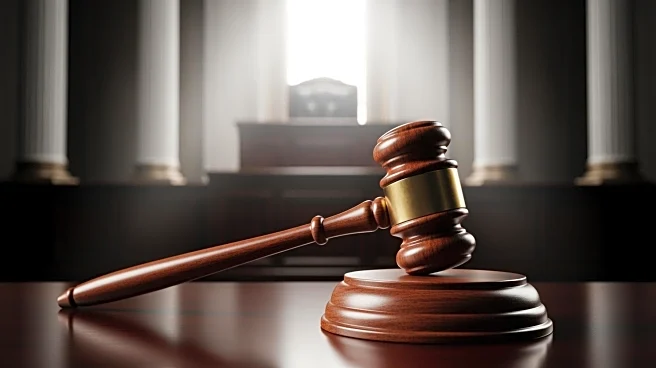What's Happening?
California Governor Gavin Newsom has filed a brief supporting a case before the Supreme Court that challenges President Trump's tariff policies. Newsom argues that these tariffs, introduced as part of
Trump's economic agenda, are unlawful and detrimental to California's economy. The tariffs were justified by Trump using the International Emergency Economic Powers Act (IEEPA), which allows the president to regulate imports during a national emergency. However, several Democratic-controlled states and small businesses have filed lawsuits claiming that the IEEPA does not provide sufficient legal grounds for Trump's tariff regime. Newsom's brief, filed alongside California Attorney General Rob Bonta, contends that the tariffs could cost California $25 billion and over 64,000 jobs.
Why It's Important?
The case is significant as it challenges the scope of presidential authority under the IEEPA, potentially impacting the balance of power between the executive branch and Congress. If the Supreme Court rules against Trump, it could set a precedent limiting presidential powers in economic policy, affecting future administrations. The outcome could also have substantial economic implications, particularly for states like California, which claim the tariffs are harming local businesses and families. With the Supreme Court's conservative majority, the decision could influence the trajectory of Trump's economic policies and their reception in the legal system.
What's Next?
The Supreme Court is scheduled to hear oral arguments on November 5. The decision will be closely watched, as it could either uphold or overturn lower court rulings that have deemed the tariff regime illegal. The ruling will have implications for the Trump administration's ability to impose tariffs without Congressional consent, potentially affecting U.S. trade relations and economic policy. Stakeholders, including political leaders and business groups, are likely to react strongly to the court's decision, given its potential impact on the economy and presidential authority.
Beyond the Headlines
The case raises broader questions about the use of emergency powers by the executive branch and the potential for overreach. It highlights the tension between state and federal authority, especially in economic matters. The legal challenge also underscores the political dynamics at play, with Democratic states opposing policies they view as harmful and authoritarian. The outcome could influence future legislative efforts to clarify or restrict presidential powers under emergency statutes.









